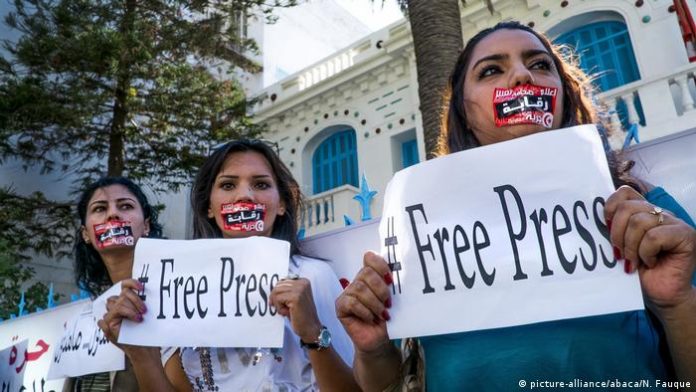Press Freedom: Tunisia‘s free and feisty press counts among the biggest wins of the historic uprising that unleashed the broader Arab Spring—even as it failed to deliver jobs and economic growth. Budding social media both covered and helped drive the spreading protests.
The North African country lauded for creating the freest press in the Arab world tumbled more than 20 places in the latest Reporters Without Borders’ press freedom index, after Tunisian President Kais Saied assumed far-reaching powers in July 2021.
It now stands an underwhelming 94th out of 180—where 1 has the optimum conditions—overall. Many fear that under the president’s new constitution, which cements his powers and erases many democratic checks and balances, hard-won liberties will erode even further — fears dismissed by Saied and his government.
Tunisia’s SNJT press union also accuses the government of launching smear campaigns against some reporters.
And a day after Saied froze parliament and fired his prime minister in July, police stormed Qatari broadcaster Al Jazeera and shut its Tunis office. Tunisian authorities reject accusations that such freedoms are under attack.
Across all forms of media, “there’s criticism,” says Tunisian Ambassador to the United States Hanene Tajouri Bessassi, describing free expression and a vibrant civil society as key gains of the revolution that remain respected and intact.
Source : VOA


